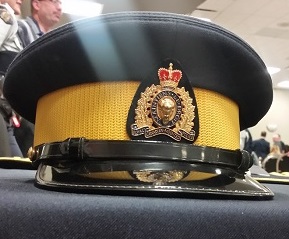The issue of reforming the RCMP has become a topic of conversation for many recently.
After the Civilian Review Complaints Commission (CRCC) released their report which found the RCMP discriminated against the family of Colten Boushie during their investigation, the Assembly of First Nations (AFN) and Federation of Sovereign Indigenous Nations (FSIN) called for the force to be put under civilian oversight. The Prince Albert Grand Council (PAGC) has also spoken up in support of civilian oversight.
Jane Gerster an independent reporter and author of the upcoming book about the RCMP, For the Good of the Force explained reforming the national police force is hardly a new idea.
“The federal government has paid tons of money over the course of the last two decades getting experts to build road maps for reform,” she said.
Gerster added it is possible for the force to be reformed and that all these previous reports provide good ways to do it. She said while reform and change is possible, there is much debate among observers about how best to go about it.
The Toronto based author and reporter said with the RCMP’s history, specifically it being created to force Indigenous peoples off the land to make way for settlers, leads some to argue it cannot be changed. While others have a different take.
“Some people will say, it should be taken apart as an act of reconciliation and then some people will say, it’s just too big and unwieldy to manage and it should be chopped up,” said Gerster.
The independent reports which have been done as a result of previous RCMP scandals have consistently called for the national police force to be put under some form of civilian oversight.
“That’s the recommendation that has come up over and over again,” she said.
Gerster added recent independent reports have found the RCMP’s attempts to reform itself have sometimes made the situation worse.
Currently the Civilian Complaints Review Commission (CRCC) can look at and review the actions of the RCMP. However, Gerster explained before the CRCC can get involved in a case, a complaint has to be filed with the RCMP, which will then investigate the complaint themselves.
If the person who makes the complaint has an issue with how the internal investigation is handled the complaint can then be referred to the CRCC. Gerster said the commission can then investigate and make recommendations.
“It still can make recommendations, but those aren’t mandatory, so the RCMP doesn’t have to listen to them,” she said.
Gerster said the RCMP’s response to the Boushie report shows how this works in part as the force has said there are some findings they agree with and others which they don’t.
Despite a number of scandals which have led to independent reports recommending change be made, the RCMP has for the most part been successful at resisting reform and specifically civilian oversight.
Gerster said there are a range of opinions about how the force has been able to successfully resist civilian oversight for so long. She explained many in the past have viewed the national police force as being an important national symbol, similar to the sport of hockey, This has hampered attempts to make any form of change after past scandals and also caused push back when there are calls to modernize.
“When you actually try to change things about the RCMP, you get push back from Canada,” she said.
For the Good of the Force is set to be released in October 2022.
